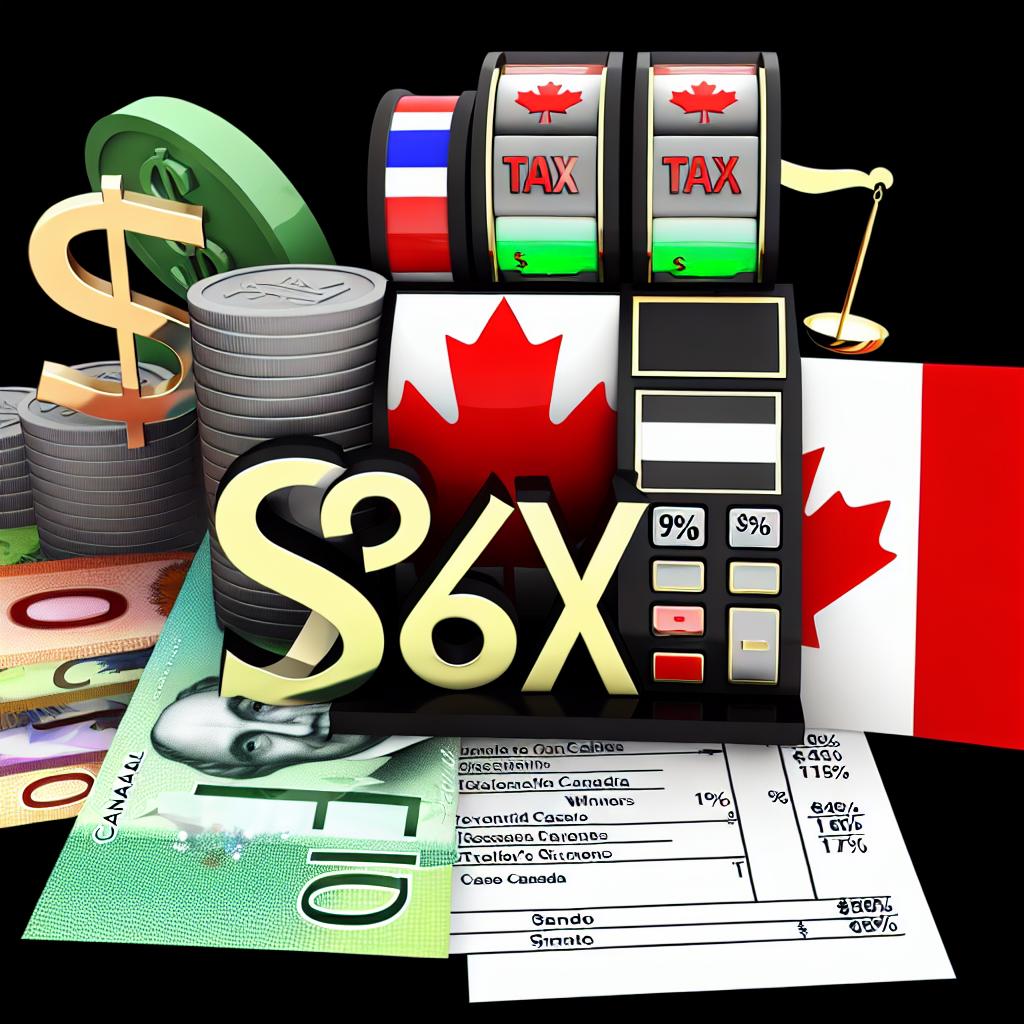Understanding Casino Winnings in Canada
In Canada, gambling is a highly popular activity enjoyed by many residents. The topic of how casino winnings are treated for tax purposes is one of considerable interest. By understanding the tax implications associated with casino winnings, individuals can better manage their financial situations, ensuring compliance with Canadian tax laws and preventing potential issues with tax authorities.
Basic Tax Rules for Casino Winnings
Within Canada, the majority of residents who win money from gambling endeavors do not find their winnings subject to taxation. This includes the amounts won from lotteries, casino games, and various other gambling activities. The primary reason for this tax situation is that gambling activities are seen in a different legal light—they are typically considered a recreational hobby as opposed to a source of income or profession for most individuals. Consequently, the winnings garnered from these activities are not classified as income, making them nontaxable in the eye of Canadian tax law.
Professional Gamblers
However, the landscape changes significantly if an individual is recognized as a professional gambler. The classification of an individual as a professional gambler does not depend solely on self-identification but involves several key factors. These factors include the frequency of gambling activities, the extent to which gambling is relied upon as a primary income source, and whether the gambling activities are conducted in an organized, systematic manner. If these criteria are met and one is classified as a professional gambler, then the winnings are treated as business income and are, therefore, subject to taxation. For those uncertain of their status, consulting with a tax professional or the Canada Revenue Agency (CRA) is advised. The CRA can provide guidance to help ascertain the correct classification and ensuing tax obligations.
Losses and Write-Offs
For casual gamblers, losses incurred during gambling are not deductible for tax purposes. This is consistent with the fact that winnings themselves are not taxable. However, the scenario is different for professional gamblers. Professional gamblers have the potential advantage of deducting their gambling losses against winnings. This deduction is contingent upon meticulously documenting each transaction. Such thorough documentation is crucial because the CRA will require comprehensive records to substantiate any claims made regarding deductions of gambling losses. Proper record-keeping is essential to ensure that deduction claims can withstand scrutiny during potential audits.
International Gambling Winnings
Moving on to the subject of international gambling, the tax rules may differ when it comes to winnings amassed outside the country. If an individual wins money in a jurisdiction where gambling income is taxed, they may be required to pay tax to that particular jurisdiction. This situation underscores the importance of being well-informed about the specific tax rules for the country in which the winnings were obtained. An individual may also benefit from consultation with a tax advisor specializing in international tax law to understand the responsibilities and obligations tied to foreign tax commitments.
U.S. Winnings
Canadians who collect winnings at U.S. casinos face specific considerations. The Internal Revenue Service (IRS), which is the tax authority in the United States, ordinarily withholds 30% of casino winnings for tax purposes. This withheld amount can, however, be reclaimed by filing a U.S. tax return. Reclaiming these funds involves an intricate process, requiring individuals to navigate both U.S. and Canadian tax regulations. Engaging with the Canada-U.S. tax treaty can be beneficial as this treaty aims to prevent double taxation, whereby the same income is taxed more than once. For Canadians, utilizing this treaty effectively can mitigate tax liabilities across both countries.
Reporting Winnings
Even though casual gambling winnings within Canada are not subject to taxation, Canadian residents are encouraged to remain well-informed about how foreign winnings and the possible transition to a professional gambler status may influence their tax filings. It is prudent to maintain comprehensive documentation of gambling activities, allowing for a smoother process if the CRA or any other tax authorities choose to review these activities.
For those seeking more exhaustive information or guidance tailored to individual situations, the official Canada Revenue Agency website serves as a reliable resource. By taking the time to understand the intricacies of tax laws as they relate to gambling in Canada, individuals can minimize the potential for future disputes with tax authorities, ensuring straightforward compliance with Canadian taxation obligations.
In summary, understanding the principles governing casino winnings taxation in Canada is essential. Recognizing the distinction between casual and professional gambling, alongside comprehending the implications of international winnings, can help individuals effectively address tax responsibilities. Through awareness and thorough documentation, gamblers in Canada can navigate the complexities of tax law efficiently and effectively.
This article was last updated on: April 15, 2025

